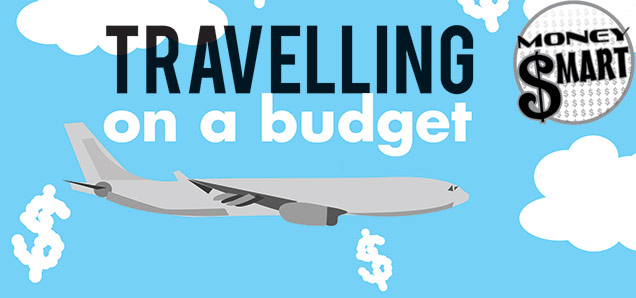Travelling on a budget

Vacations are supposed to give you a break and let you relax, but sometimes they can become more stressful than your day-to-day life! Money and overspending are a huge issue when it comes to vacationing, which makes sense because you are living without all the comforts and amenities. Whether you're driving two hours to a small town or flying 10 hours to a tropical destination, you will need to pay for necessities like food, transportation and accommodations, plus extras like clothes or souvenirs. Expenses can add up faster than you expect, but there are some things you can do to keep your total cost down.
Kelly Balderston, a vacation travel specialist who works for Robert Q Travel, said, “Determining a budget beforehand and considering how much a room, food, entertainment and drinks will cost, and comparing several options, will allow you to determine what is best for you.”
Additionally, she suggested doing your research ahead of time. “Booking last-minute does not save you money; it can actually end up costing you more.” Planning and research is key to having a successful vacation, whether you're looking to save money, or simply looking for ways to spend your time. When planning a vacation, the first thing to think about is what time of year you want to travel in.
“Research your destination to determine when off-season is. Travelling during peak travel season is expensive.” Airlines raise their ticket prices during the summer and over March and Christmas breaks because these are popular times to travel.
Compare costs for different types of transportation. Check train prices and airline prices, and also calculate approximately how much it would cost you to drive. If you decide to take an airplane, fly midweek. The prices are usually lower on days in the middle of the week like Tuesdays and Wednesdays. “Usually the single most expensive item when people travel is the airfare. When travelling to Europe. Australia or Asia, airfare will run in the thousands of dollars,” warned Balderston. Make sure you spend time researching the best flights, if you chose to fly.
Along with avoiding popular travel times, avoid congested, popular areas. Instead of staying in a hotel at the centre of the city you're vacationing in, try to find accommodations just outside that area. These places are usually a lot cheaper than the mainstream hotels. “Generally speaking, hotels in the heart of the action come at a premium, so staying just outside can cost you less. You need to consider, however, how easy transportation will be and how much it will cost — it may be a tradeoff.”
Hotels are not your only option for accommodations, of course. Hostels may not seem like much in comparison to fancy five-star accommodations, but are those really necessary for a short vacation? You'll be out and about all day, so most of the time you spend in your room will just be to sleep. Another lodging option is a vacation home. Renting vacation homes can be the same price, or even cheaper than hotels, depending on how many nights you stay. Plus, you will have your own kitchen so you can save a lot of money on food.
Food costs add up very quickly, especially if you are travelling with your family and you all eat together at a restaurant for every meal. “Buy at local markets and eat in your hotel room,” suggested Balderston. “Eating in restaurants is expensive, and buying in local markets is more fun. Find accommodations that include breakfast, then you at least are starting your day off with one meal, then have a late afternoon meal and that will cover lunch and dinner. Then all you need is a snack in the evening.”
“The bottom line is if a person wants to travel on a budget, the primary thing is to do some research and cost analysis to determine the best option,” Balderston said. “Travelling is an amazing experience and can be done on almost any budget!”













